Books
Books
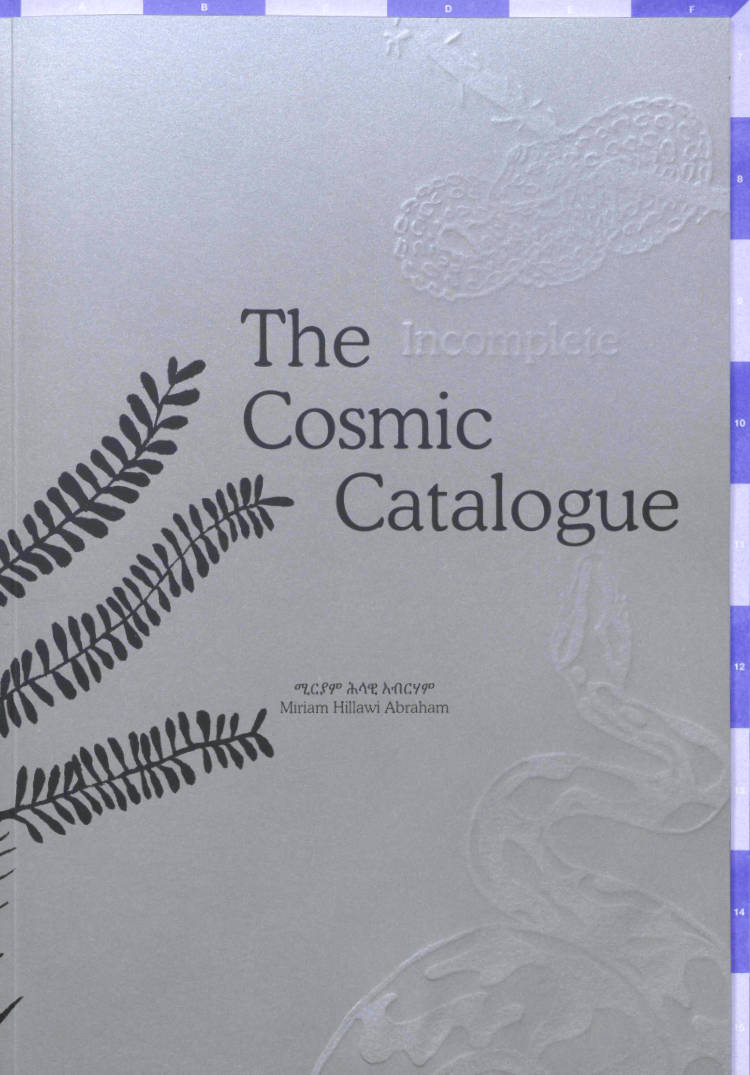
The (Incomplete) Cosmic Catalogue
Mapping constellations between five specific pre-colonial cosmological examples extending from the Sahel to the Horn of Africa, this work reframes cosmology as a multi-dimensional and scalable practice of situated technologies and embodied cartographies. The resulting publication which was produced during the Jan van Eyck residency is a culmination of several years of research and exploration into precolonial cosmologies and spatial orders rooted in the African Sahel extending to the Horn of Africa.
The (Incomplete) Cosmic Catalogue is an output of a research project that was initially commissioned by the Canadian Centre for Architecture as part of the multi-disciplinary research fellowship, The Digita Now: Architecture and Intersectionality in 2022.
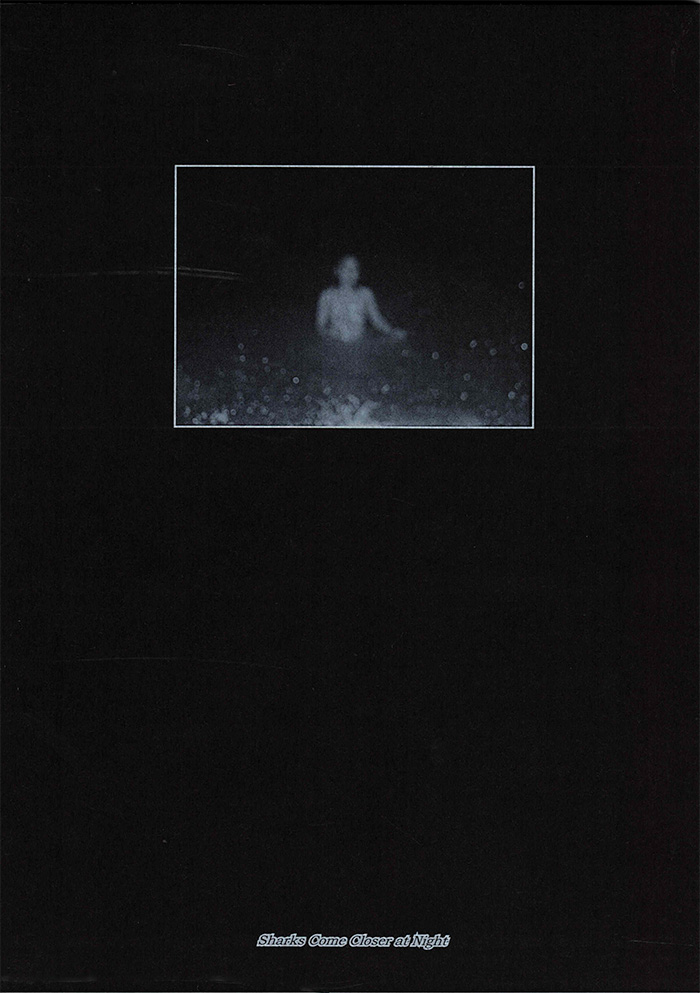
Sharks Come Closer at Night
Sharks Come Closer at Night explores the bond the photographer Lauranne Leunis formed with friends during a first experience far from home. It becomes an intimate reflection on the sacred space they created during their evening walks. In these moments, they found solace in one another while navigating the challenges of young adulthood and the complexities of femininity. The work aims to slow down time, capturing moments of vulnerability, freedom, and connection. Yet even in the stillness, the persistent sound of crashing waves and splashing water serves as a reminder that time is always moving.
All photographs are made on analogue black-and-white film, using various camera formats. This approach adds a raw, fleeting quality to the images, distinguishing them from more staged photographs.

A Queer Year of Love Letters
A Queer Year of Love Letters: Alphabets Against Erasure is a toolkit for writing and remembering queer and trans histories. Expanding on Nat Pyper’s series of fonts whose letterforms derive from the life stories and printed traces of countercultural queers of the last several decades, this new book showcases overlooked biographies alongside previously unseen archival materials, as well as Pyper’s unique approach to designing fonts as containers for memory.
The book debuts a new essay by Pyper, and includes contributions from Paul Soulellis, Claire Star Finch, Silas Munro, Lukaza Branfman-Verissimo, Rosen Eveleigh, and G. B. Jones that offer vital perspectives on queer archival practices, language lineages, design as protest, and love as the basis for research. Part reader, part type specimen, part love letter, these fonts foreground the politics of queer memory while opening up new avenues for writers, designers, and curious readers.
Dear writer,
A Queer Year of Love Letters is a series of fonts that remembers the lives and work of countercultural queers of the past several decades. The series aims to make the act of remembering these overlooked and illegitimate histories accessible to other people, as easy as typing. Better yet: it aims to make the act of typing an act of remembering. That these fonts might be considered typefaces is incidental. They are an attempt to improvise a clandestine lineage, an aspatial and atemporal kind of queer kinship, through the act of writing.
I began making these fonts in order to rapidly document and disseminate the work and ideas that they cite. I pack these histories, or part of them, into fonts for a couple of reasons. First, font files are durable. OpenType fonts (.OTFs) have persisted in their ubiquity since the late '90s and maintain their utility as a nimble and reliable format. Second, fonts have the capacity to contain a hefty amount of information within a tiny package. In under 100 kilobytes, an entire alphabet! In the font’s metadata, a manifesto! Fonts then function as a useful format for ferrying information from one place to another.
I am using these fonts as time machines. These machines take me back—to Robert Ford and Black gay and lesbian underground publishing in early 1990s Chicago; to the Lesbian Alliance, a socialist-feminist enclave in 1970s St. Louis, Missouri; to G.B. Jones and queer punk filmmaking in 1980s downtown Toronto—but they also take me forward to unknown futures through the act of writing itself. In use, these fonts engage the past as a provocation. They engage the past as a verb.
Is this romantic? Yes.
Love,
Nat
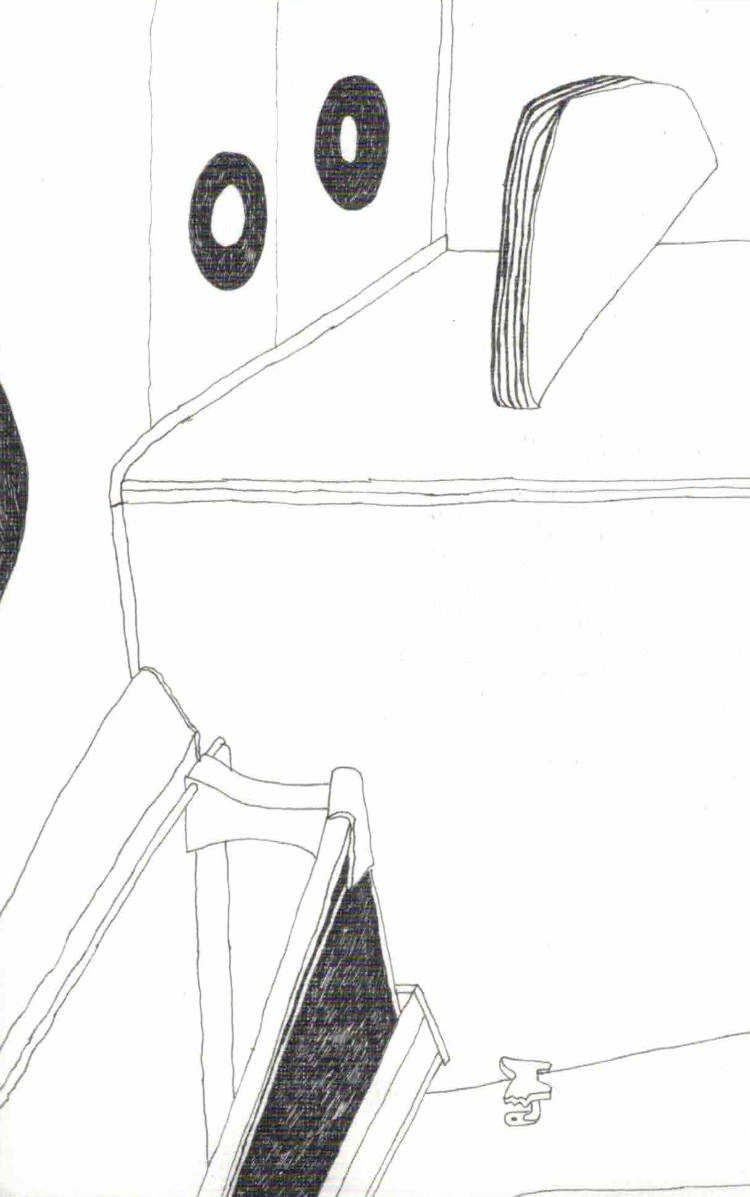
Retour
Retour is a book featuring a collection of drawings made on train journeys between Belgium and the Netherlands. It combines hand-written typography and train interiors, subtly highlighting cultural differences forming the countries’ border.
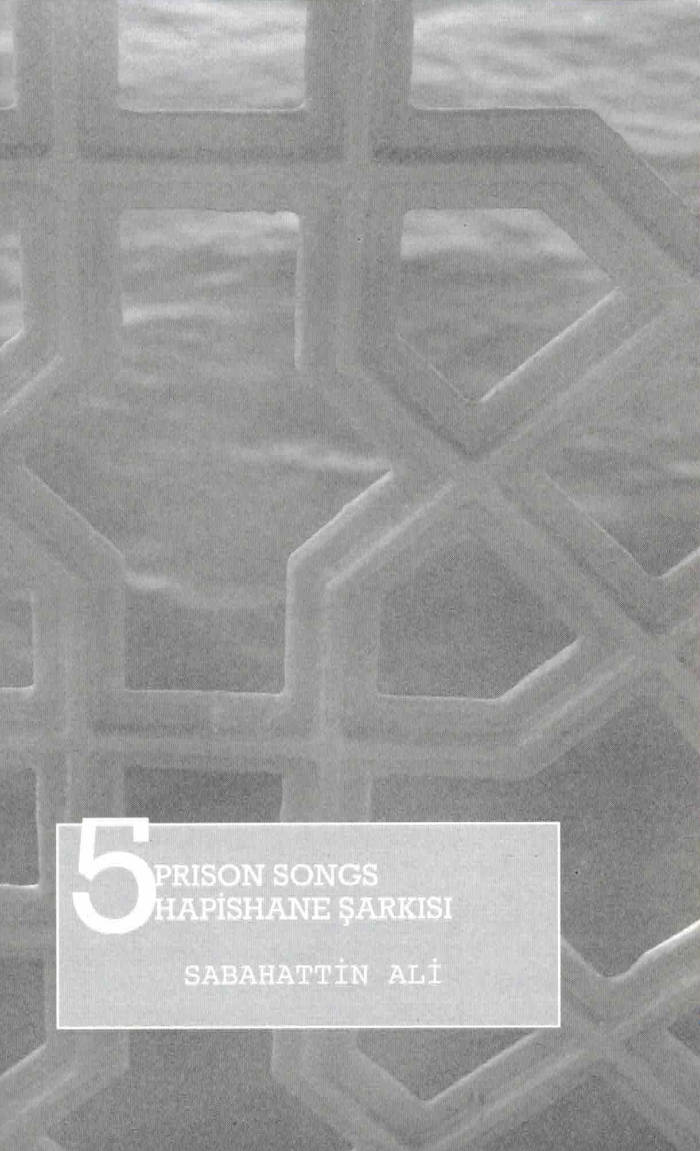
5 Prison songs / 5 Hapishane Şarkısı
This booklet is a collection of 5 Prison Songs written by Sabahattin Ali in 1932-1933 whilst imprisoned in Konya and Sinop, Turkey.
Bu kitapçık Sabahattin Ali’nin 1932-1933 senelerinde önce Konya sonra Sinop hapishanesinde kaleme aldığı 5 Hapishane Şarkısı içerir.
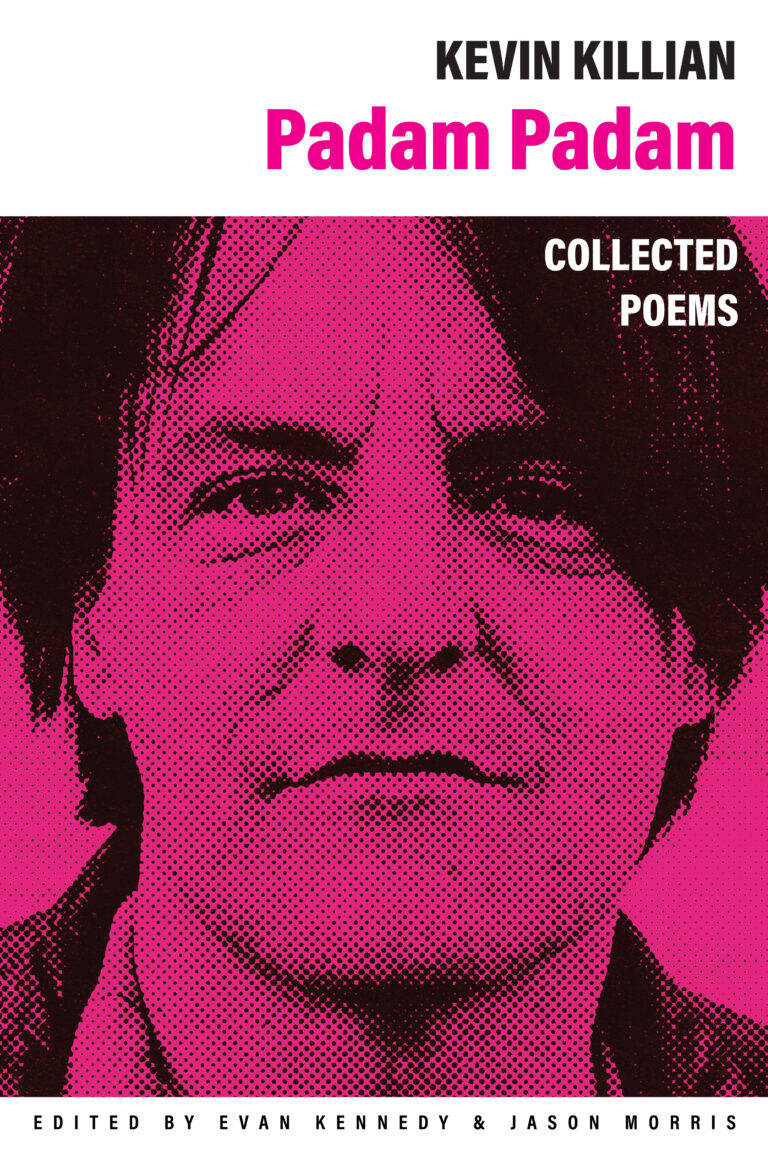
Padam Padam: Collected Poems
A posthumous celebration of the poet and provocateur Kevin Killian, Padam Padam pulses with camp, pop culture, and pleasure.
Kevin Killian—the puckish poet, playwright, novelist, scholar, and impresario of the Bay Area arts community—channeled the charisma of the pop stars. Pulled from his legendary corpus, and long out of print, the work collected here is the record of Killian’s life as a radical littérateur. In Argento Series, Killian conjures the horror, suspense, and cinematic imagery of director Dario Argento as he documents the AIDS epidemic in San Francisco. In Action Kylie, he revels in queer identity and the universal love of fandom. In Tweaky Village and Tony Greene Era, Killian elevates artists and friends to legendary status within his personal pantheon. And Elements, Killian’s wink at the periodic table, makes its U.S. debut.
The collection features an introduction by Kay Gabriel, who writes of Killian’s “fabulous, permissive body of work, charming, filthy and smarmy at turns, with its retchable milk enemas and its devilish twists.”
Edited by Evan Kennedy & Jason Morris
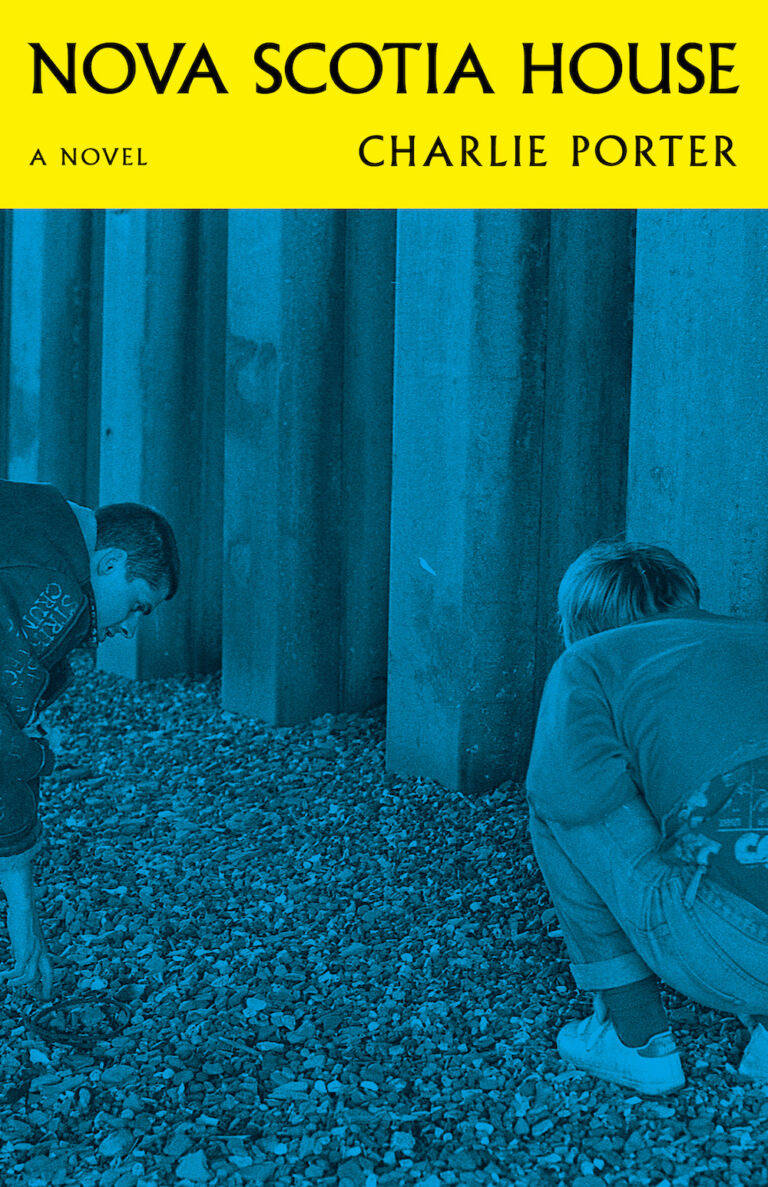
Nova Scotia House
Nova Scotia House takes us to the heart of a relationship, a community and an era, both a love story and a lament.
In this profound meditation on grief, Johnny looks back at his relationship with his life partner, Jerry, after his AIDS-related death. When they met, nearly thirty years ago, Johnny was 19, Jerry was 45. They made a life on their own terms in Jerry’s flat: 1, Nova Scotia House. Johnny is still there today—but Jerry is gone, and so is the world they knew.
Intimate, visionary, and profoundly original—as well as raw, hot, and hilarious—Nova Scotia House marks the debut of a vibrant new voice in contemporary fiction.
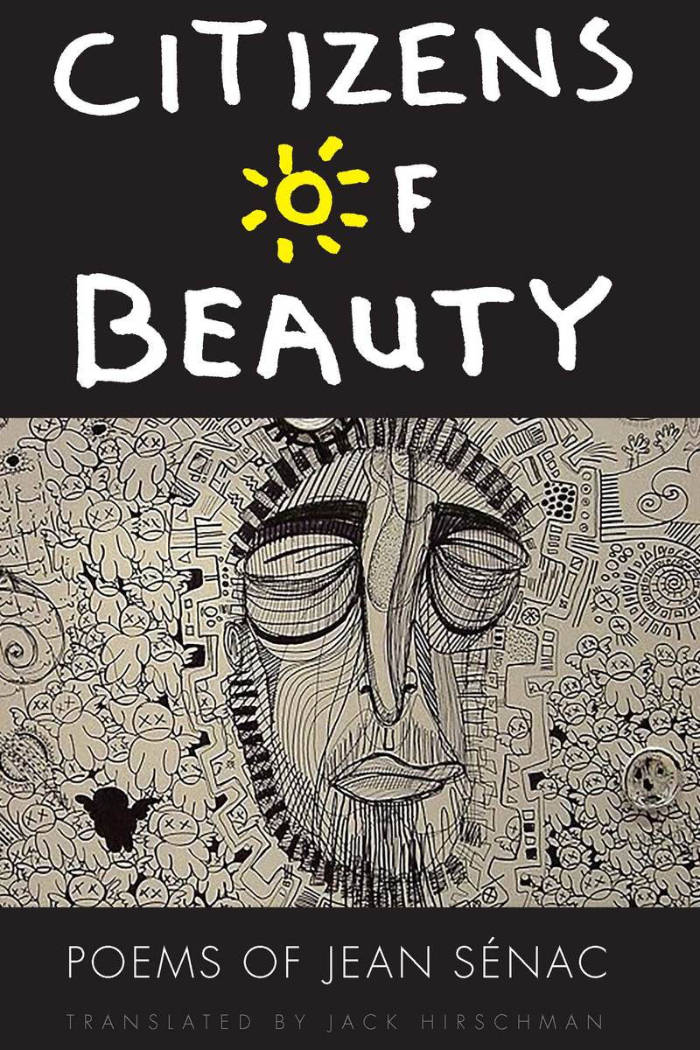
Michigan State University Press
Citizens of Beauty: Poems of Jean Sénac
This stunning collection of poems by the Algerian poet Jean Sénac (1926–1973) was originally published when he was forty-one. Sénac represented the hope of the new generation of Algerians who were celebrating their independence from France after 130 years of colonialism, and in the tradition of René Char and the early Albert Camus, he portrayed an Algeria whose land and people would finally sing with their own voice.
Sénac celebrates revolution, love, and the body, beginning with the resonant verses: “And now we’ll sing love / for there’s no Revolution without love.” He sang, as well, of beauty: “No morning without smiling. / Beauty on our lips is one continuous fruit.”
Translated by Jack Hirschman
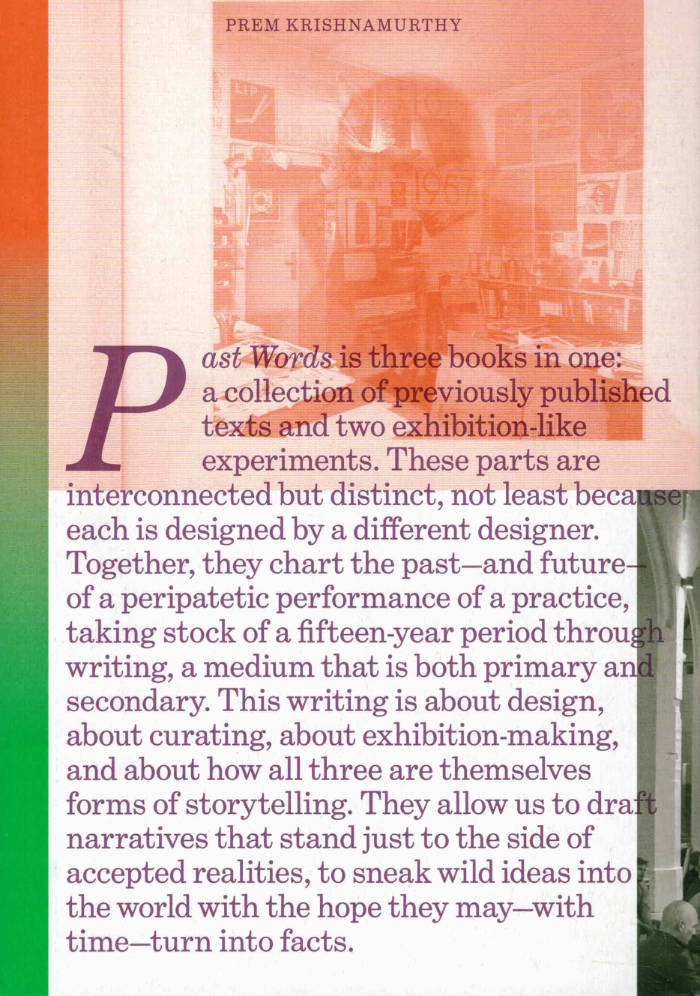
Verlag der Buchhandlung Walther König
Past Words
Past Words is three books in one: a collection of previously published texts and two exhibition-like experiments: A Year with Prem Krishnamurthy at the KW Institute for Contemporary Art, Berlin, and Endless Exhibition at the Kunsthal Gent. These parts are iinterconnected but distinct, not least because each is designed by a different designer—Ann Richter, David Knowles, Mark Foss & Valentijn Goethals. Together, they chart the past—and future—of a peripatetic performance of a practice, taking stock of a fifteen-year period through writing, a medium that 1s both primary and secondary. This writing is about design, about curating, about exhibition-making, and about how all three are themselves forms of storytelling. They allow us to draft narratives that stand just to the side of accepted realities, to sneak wild ideas into the world with the hope they may—with time—turn into facts.
Based in Berlin and New York, designer and curator Prem Krishnamurthy (born 1977) is head of the artist group Department of Transformation and of the design consultancy Wkshps. In 2015 he was the recipient of the Cooper Hewitt’s National Design Award for Communication essDesign. As both creator and curator, Krishnamurthy aims to discover “how art & design can be agents of transformation for individuals, communities and institutions.”
With an introduction by Krist Gruijthuijsen.

Verlag der Buchhandlung Walther König
#GIVEPOETRYATRY
The artist’s book ‘#GIVEPOETRYATRYCOLLECTEDPOETRY1990-2020…’ features thirty years of Karl Holmqvist’s artist’s writing in the form of spoken word and concrete poetry, together with signature “cover versions” of lyrics from singer-songwriters such as Robyn and Taylor Swift. The book’s tightly written A4 format pages and cardboard-box-brown no-nonsense cover has been designed in a collaborative effort between the artist and designer Dan Solbach.
‘#GIVEPOETRYATRYCOLLECTEDPOETRY1990-2020…’ Karl Holmqvist’s artist’s book of collected poetry is published by Verlag der Buchhandlung Walther und Franz König on the occasion of projects at the Fridericianum, Kassel and gta exhibitions, ETH Zurich.
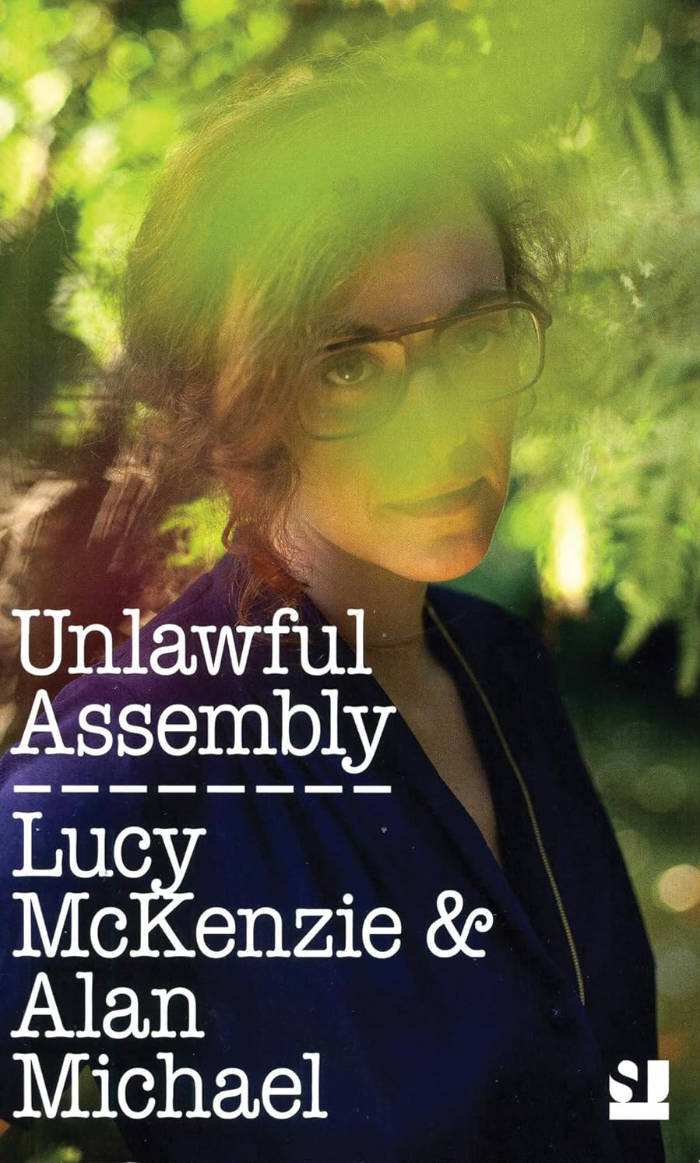
Verlag der Buchhandlung Walther König
Unlawful Assembly
A collection of interrelated short stories by Lucy McKenzie and Alan Michael. First published in private limited edition, it was intended as a cheap holiday read to titillate and entertain summer visitors to the Mediterranean island of Stromboli, and as a piece of site-specific work; the location of the action and the place in which it is read being the same.
The visual art subsequently generated by Unlawful Assembly includes work by Josephine Pryde, with whom the artists collaborated to produce this second edition’s cover image.
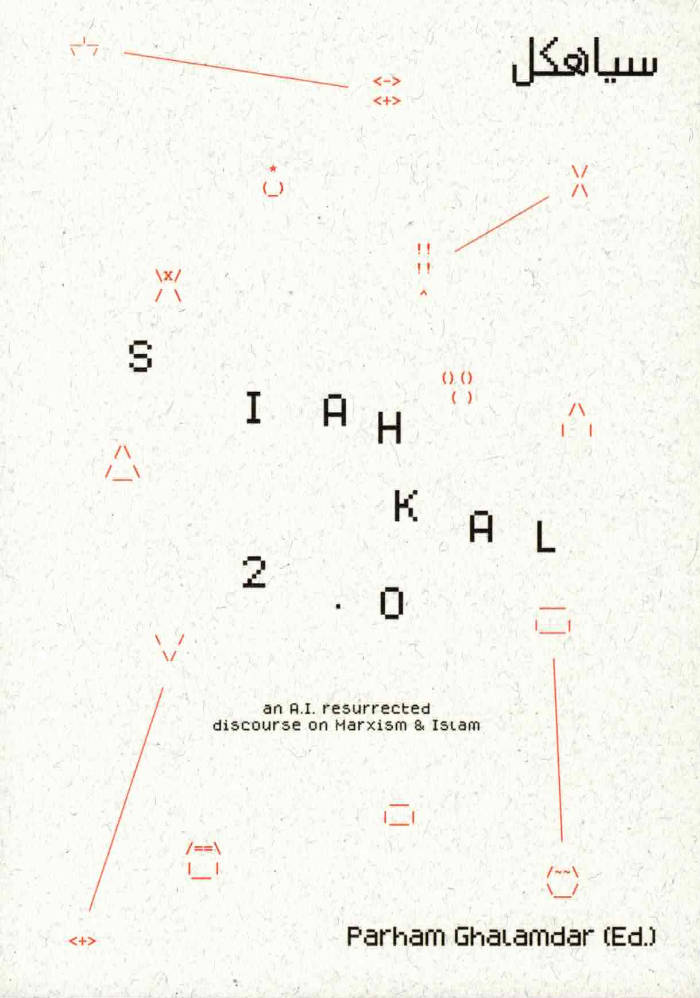
SIAHKAL 2.0: An A.I. resurrected discourse on Marxism & Islam
This is a limited edition book. The author trained an LLM on the texts of a deceased theorist, and then proceeded to interact with the LLM and produce simulations of what the theorist may have said in regards to various pertinent topics. The book is primarily a free online resource, but a few copies are being printed to commemorate the work. It has a foreword and afterword by the Editors.
At the core of this project is a translation of “Marxist Islam or Islamic Marxism,” a groundbreaking text written by Bizhan Jazani during his imprisonment in the 1970s under the Shah’s oppressive regime. Translated by Parham Ghalamdar, this work is accompanied by an introduction contextualizing Jazani’s radical vision. Ghalamdar also contributes a series of ASCII-style illustrations and diagrams—AI-assisted reinterpretations of Jazani’s original paintings and photographs—that bridge the past and present, offering a new perspective on his revolutionary artistry.
Siahkal names a place in the forests of Gilan and a threshold in revolutionary time. In 1971 a guerrilla action near Siahkal shook the order of the Shah. The action failed militarily yet seeded a myth for the People’s Fedai Guerrillas. Bizhan Jazani, a founding thinker, wrote and painted in prison and was executed in 1975. His work teaches that strategy rather than sentiment endures. // This book treats Siahkal as a Deep Object, a persistent attractor that gathers memory, images, and tactics. An AI model trained on Jazani’s writings and paintings translates his essay on Islamic Marxism and proposes annotations. The machine functions as a probe that widens attention while remaining accountable to the source. Parham Ghalamdar trained the AI, wrote the introduction, and composed ASCII diagrams and diagrammatic readings from Jazani’s artworks. Parsa Esmaeilzadeh contributes an essay that reads Jazani through Karatani and left accelerationism. // It is a call to reimagine and export revolution as a Deep Object that asks for Deep Time to unfold. This clandestine edition invites the reader to study, test, and build strategy that can outlast the news cycle and meet the future head on.
Parham Ghalamdar is a multidisciplinary artist currently based in the UK. Ghalamdar’s work traces forgotten mythologies, buried philosophies, and visual ruins, reconfiguring them into speculative worlds where memory, fiction, and futurism collapse into one another. Drawing on cybernetic theory and generative AI, he explores how systems of feedback, simulation, and machine vision mediate our understanding of history and possibility. Through painting, film, and writing, he builds narratives that feel both ancient and yet-to-come, haunted by lost histories and animated by possible futures.

Empires Over Skin: How we Fashioned our World
Meltdown Your Books, the author of Where Does A Body Begin? (2023), returns to Becoming Press for their second book, focusing not, this time, on the body itself, but what comes next. Whether in the sense of Dress, Clothing or Fashion, there is not much beyond the body itself that better signifies humanity than the act of adorning a body with garments, because we have no fur, or because of social codes, whether religious or class-oriented, because of beauty, or because of industrial capital; because, because, because.
“The mounds of clothing that adorn my floor and the foot of my bed sometimes grow too large, and suddenly I am sinking into the matted mess of fabrics. On days like these I can’t help but feel that clothing, not just my clothing, but the very idea of clothing, is swallowing me up. Clothing is this immensity looming over me, yet somehow a microscopic itch in my brain, prodding me and twisting itself into knots–an irritation I accept for the temporary bliss of scratching it.”
To be human is to wake up, every morning, and to don the costume that completes your identity, for better or worse, by choice or by coercion.
The task this book undertakes requires a particular kind of author, one who can recognise and sort through the contradictions on a theoretical level, but also someone who does not abstract the topic from their position as a subject—a critical book of fashion must be written by someone who lives it, someone who is passionate enough to write in good faith, because fashion isn’t just Gucci and Sweatshops—which themselves are rightly condemned for all kinds of reasons—because fashion itself is merely the tip of what may be one of the biggest, deepest ice bergs of all—Fashion is a philosophical black hole, one which drags everything into its infinite stomach, from semiotics to psychoanalysis, to art, design and craftsmanship, to economics and production chains, to speculation and historicising, to algebra, journalism and so on.
Yet, this isn’t a philosophy book because it is simply too down-to-earth and relatable; it is just as celebratory and excited as it is critical. M.Y.B. begins by simply looking down, and beginning to describe the shoes upon their feet—it unravels dialectically and uncovers long chains of connections that stretch back through time.
Meltdown Your Books (M.Y.B.), the pen name, was made as a portmanteau of the seminal essay Meltdown by Nick Land, and the landmark film Throw Away Your Books, Rally in the Streets by Shuji Terayama. I chose the name, almost 3 years ago now, to reflect the political and digital black hole I saw hovering at the edge of contemporary media experience, and to present my work without the muddy veneer of personal identity. It has remained, since its inception, an anonymous project in only the loosest terms. The dedicated could always find my real identity, and some have, and so its anonymous character existed primarily as an element of presentation. Its anonymity existed to emphasize its deindividuated character. The things I discuss and emphasize under the M.Y.B. label are not items with definitive characteristics, they are collective experiences. M.Y.B. is something I cherish beyond self.
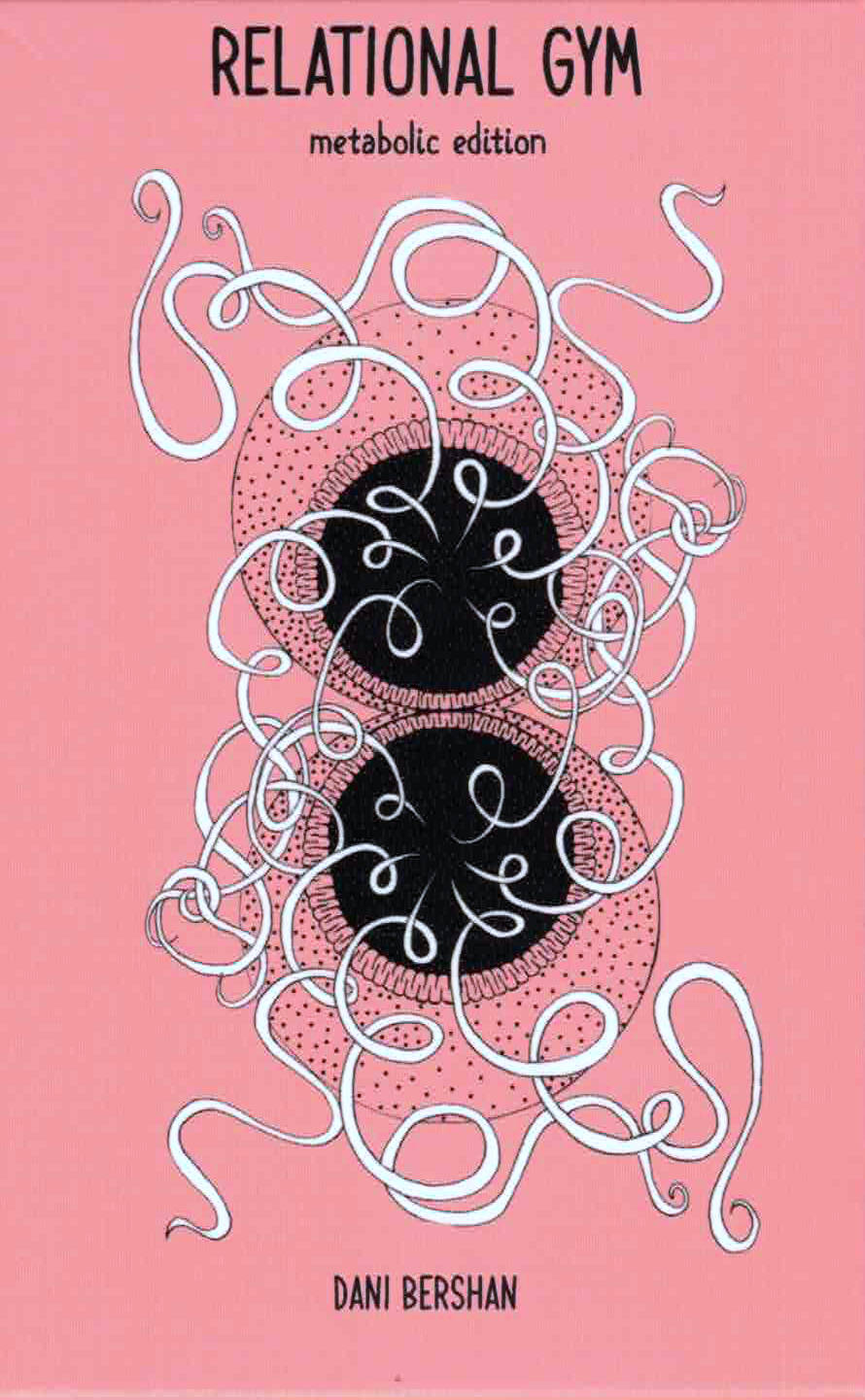
Relational Gym - metabolic edition
This deck is a ritual technology for metabolizing what is happening in the world — and the world is burning, flooding, choking, grieving, starving, birthing, emerging.
Here, metabolism is not just digestion. It’s a political act. A refusal. A prayer. A practice of remembering that every breath, every bite, every boundary, every breakdown is a site of relation — and that relation is never neutral.
This deck does not offer escape. It offers entanglement. It offers deep compost. It offers the sacred mess of staying with the trouble in a world that teaches us to numb, sever, consume, and forget.
It asks: What are we absorbing? What are we excreting? What are we ready to transform — personally, collectively, cosmically?
Use it when you feel cracked open. Use it when you feel sealed shut. Use it as ceremony, as salve, as companion, as agitation. Draw a card. Let the questions move you. Let the images sit on your mucosa. Let the reflections metabolize slowly — in the gut, in the fascia, in the field.
Each card invites you to remember that your body is not separate from Earth’s body. That your breath is not yours alone. That healing is not a return to purity, but a layered, leaking, entangled becoming. There is no clean air. No clean grief. No clean soil and no clean politics. Only deeper sensing, slower noticing, more compassionate worlding and a thousand and one chances to recommit to aliveness — again and again. Let rot what needs rotting. Let feed what needs feeding.
A 39-card oracle deck + 52-page booklet.
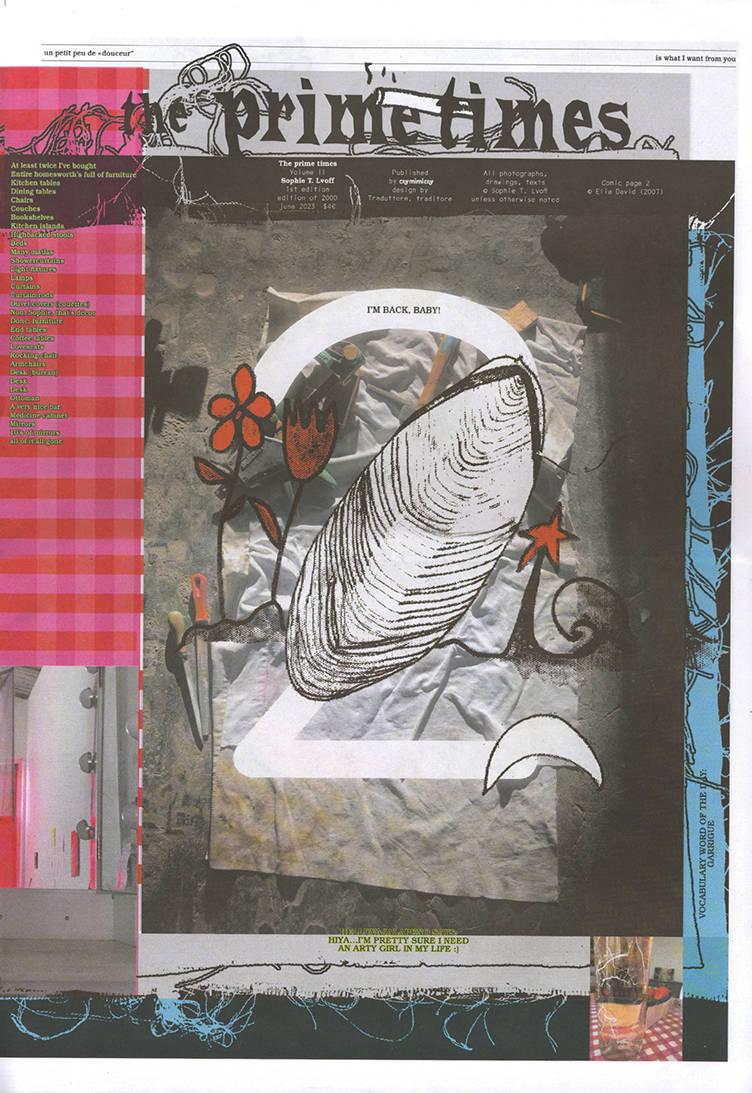
The Prime Times Vol.2
Sophie T. Lvoff revient avec « The Prime Times, Volume 2 » à l'occasion de la fin de sa résidence aux ateliers de la ville de Marseille, bye, bye! Au travers de poèmes en haïku, de gros titres et de photographies de son atelier traversé par la lumière du jour au milieu de l’après-midi, le journal chronique la torpeur des longues journées de travail mêlées d’attente, de glimpses et de glances. En attendant the prime time, Sophie lit les nouvelles sur son téléphone, parcourt paresseusement sa bibliothèque, écrit des emails à des amix éloigné·es et parfois à elle-même. Elle note des blagues et des poèmes dans son cahier, mange des snacks, doute d’elle-même, fume, jette des regards autour d’elle, jusqu’au moment précis où la photo doit être prise.
Sophie T. Lvoff is back with « The Prime Times, Volume 2 »! Through haiku poems, headlines, doodles and photographs of her studio pierced by mid-afternoon daylight, the journal chronicles the torpor of long workdays mixed with waiting, glimpses, and glances. While waiting for the prime time, Sophie reads the news on her phone and lazily reads her collection of books, writes emails to far-away friends and sometimes to herself. She notes things in notebooks and writes jokes and poems, stretches, eats snacks, doubts herself, smokes, glances around, until the precise moment when the picture has to be taken.
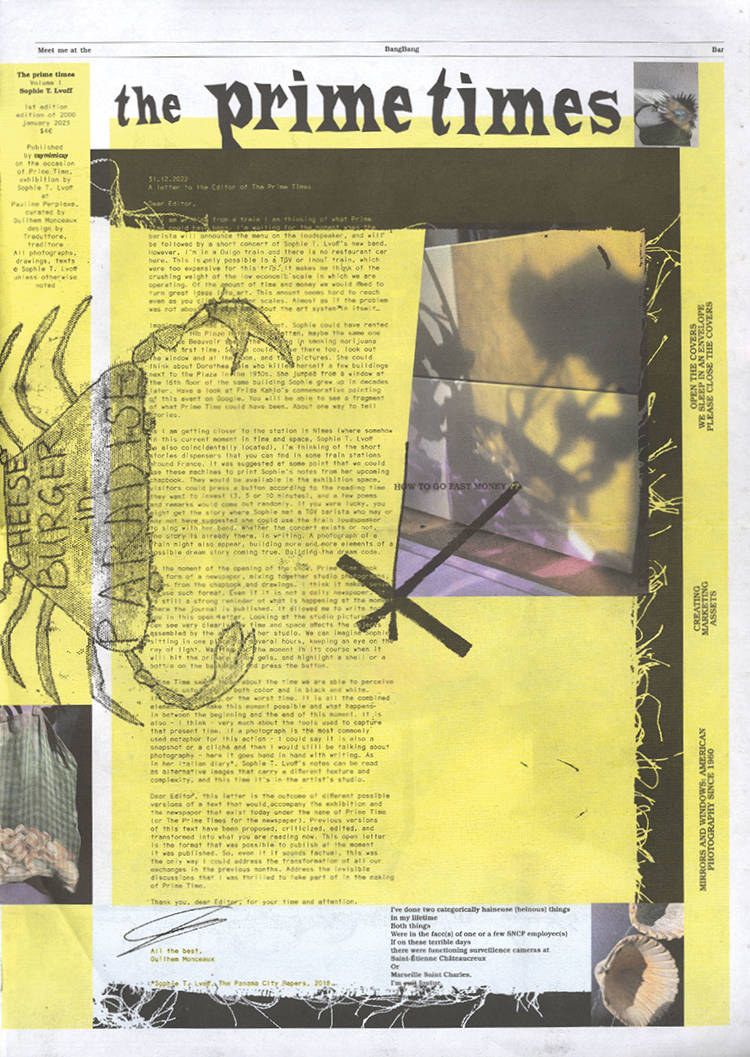
The Prime Times Vol.1
Dans « The Prime Times, Volume 1 », Sophie T. Lvoff met en scène sa pratique quotidienne d’atelier. Au travers de poèmes en haïku, de gros titres et de photographies de son atelier traversé par la lumière du jour au milieu de l’après-midi, le journal chronique la torpeur des longues journées de travail mêlées d’attente, de glimpses et de glances.
En attendant the prime time, Sophie lit les nouvelles sur son téléphone, parcourt paresseusement sa bibliothèque, écrit des emails à des amix éloigné·es et parfois à elle-même. Elle note des blagues et des poèmes dans son cahier, mange des snacks, doute d’elle-même, fume, jette des regards autour d’elle, jusqu’au moment précis où la photo doit être prise.
In « The Prime Times, Volume 1 », Sophie T. Lvoff dramatizes her daily studio practice. Through haiku poems, headlines, doodles and photographs of her studio pierced by mid-afternoon daylight, the journal chronicles the torpor of long workdays mixed with waiting, glimpses, and glances.
While waiting for the prime time, Sophie reads the news on her phone and lazily reads her collection of books, writes emails to far-away friends and sometimes to herself. She notes things in notebooks and writes jokes and poems, stretches, eats snacks, doubts herself, smokes, glances around, until the precise moment when the picture has to be taken.
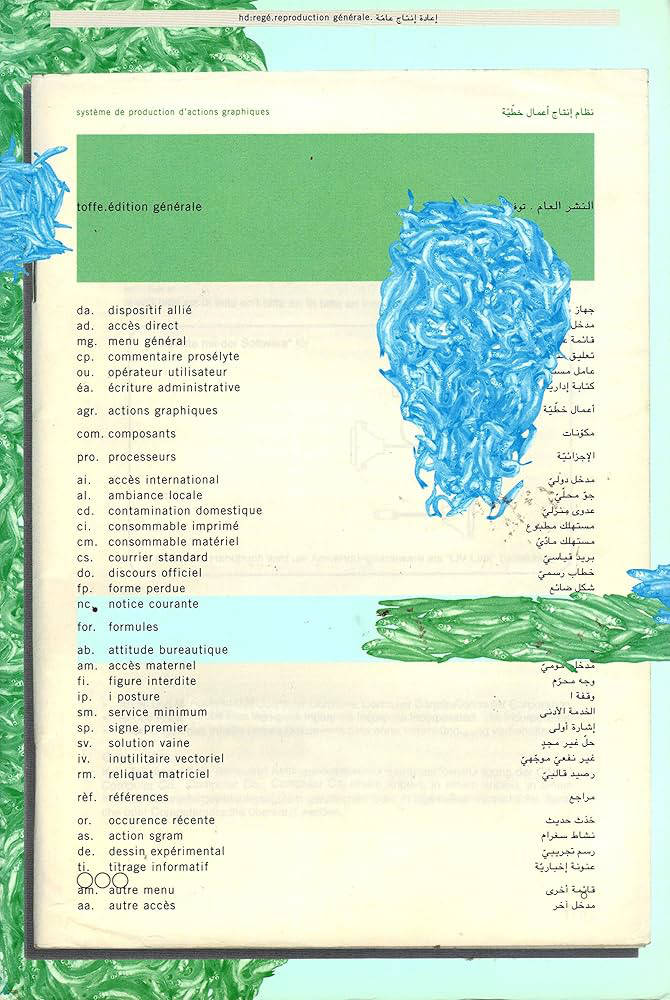
Toffe. édition générale : système de production d'actions graphiques
toffe. édition générale
publication issue de reproduction générale,
système de production d'actions graphiques
développé en trois temps :
projection générale
dispositif multi-écran, pour la chaufferie
galerie de l'école supérieure des arts décoratifs de strasbourg
du 14 février au 23 mars 2003
présentation, édition générale
école nationale supérieure des beaux-arts d'alger
du 24 mai 2003
exposition, occurrence récente
diffusion, édition générale
galerie madé, paris
du 12 mai au 5 juin 2003
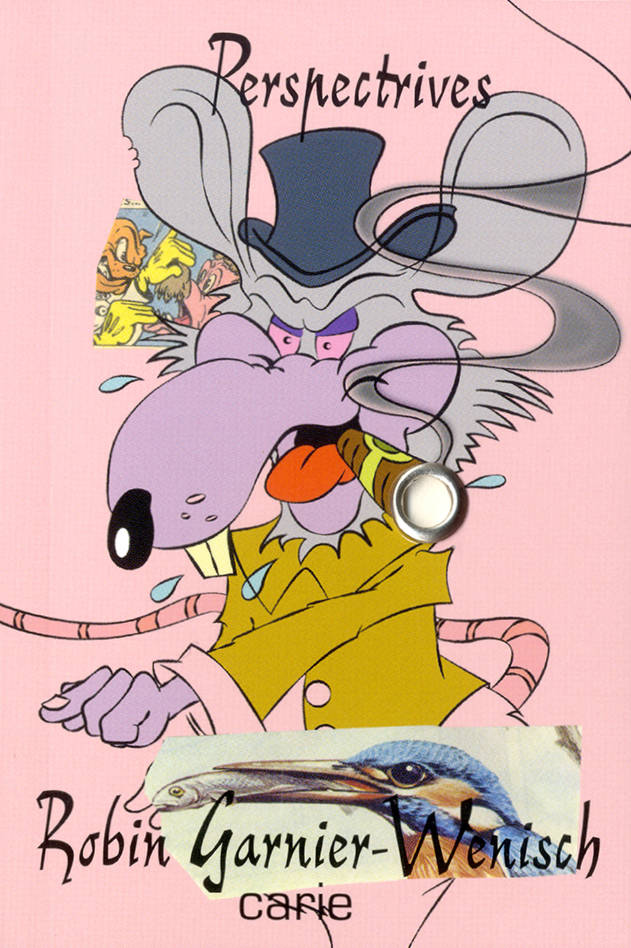
Perspectrives
Écrit entre 2024 et 2025, Perspectrives jette des pièces, des cannettes et des chats dans des boîtes. Souvenirs d’adolescence à errer dans les rues et parcs publics aux abords du lycée.
Written between 2024 and 2025, Perspectrives throws coins, cans, and cats into boxes. Memories of adolescence wandering the streets and public parks around the high school.
les mots sont des patates
de la papote-popotte
cuite cuite en papillote
dans les grandes bouches
chaudes.
(Perspectrives)
Carie, comme le trou qu’on bouche au plomb, est une collection de textes courts et moyens qui se glissent dans la poche. Chaque livre (la dent) de la collection (la bouche) est troué (la carie) et cerclé d’un œillet métallique (le plombage).
Carie, like the hole filled with lead, is a collection of short and medium-length texts that slip into the pocket. Each book (the tooth) in the collection (the mouth) is holed (the cavity) and circled with a metal eyelet (the filling).
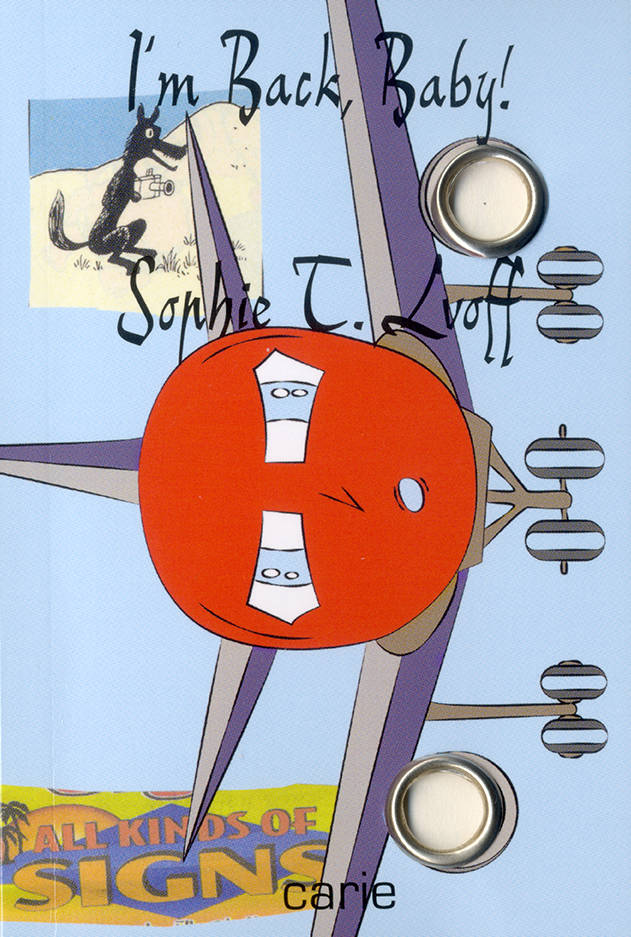
I'm Back, Baby!
Après la naissance de sa baby girl, Sophie T. Lvoff tente de faire son come-back dans l’art contemporain. Elle doit se rendre au vernissage de son exposition dans un Kunstverein en Allemagne. Juste avant, elle emmène ses étudiant·es à Sainte-Marie-de-la-Mer en Camargue pour prendre des photos de flamants roses et de couchers de soleil mais rien ne se passe comme prévu…
After the birth of her baby girl, Sophie T. Lvoff tries to make her comeback in contemporary art. Before heading to the opening of her exhibition at a Kunstverein in Germany, she takes her students to Sainte-Marie-de-la-Mer in the Camargue to photograph flamingos and sunsets, but nothing goes as planned…
A manicure would be a good thing to do for her international comeback, but perhaps that could happen in Munich later.
(I'm Back, Baby!)
Carie, comme le trou qu’on bouche au plomb, est une collection de textes courts et moyens qui se glissent dans la poche. Chaque livre (la dent) de la collection (la bouche) est troué (la carie) et cerclé d’un œillet métallique (le plombage).
Carie, like the hole filled with lead, is a collection of short and medium-length texts that slip into the pocket. Each book (the tooth) in the collection (the mouth) is holed (the cavity) and circled with a metal eyelet (the filling).
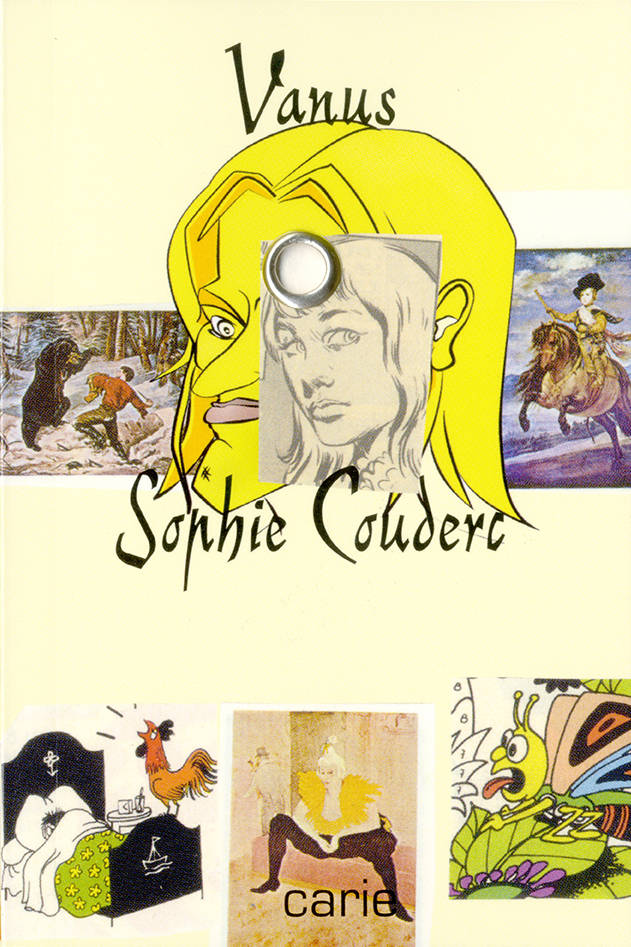
Vanus
Vanus übermann des villes, le roi de la ville, le roi du monde, se fait des odes à lui-même et met ses chaussettes dans la pâte à pain. Sophie Couderc raconte quelques-unes de ses péripéties.
Vanus übermann of the cities, the king of the city, the king of the world, writes odes to himself and puts his socks in bread dough. Sophie Couderc recounts some of his adventures.
Je jette le matelas dehors, il rebondit sur trois cons et tombe dans une grosse flaque de jus de rue. Ok, pas mal mais il m’en faut plus. (Vanus)
Carie, comme le trou qu’on bouche au plomb, est une collection de textes courts et moyens qui se glissent dans la poche. Chaque livre (la dent) de la collection (la bouche) est troué (la carie) et cerclé d’un œillet métallique (le plombage).
Carie, like the hole filled with lead, is a collection of short and medium-length texts that slip into the pocket. Each book (the tooth) in the collection (the mouth) is holed (the cavity) and circled with a metal eyelet (the filling).
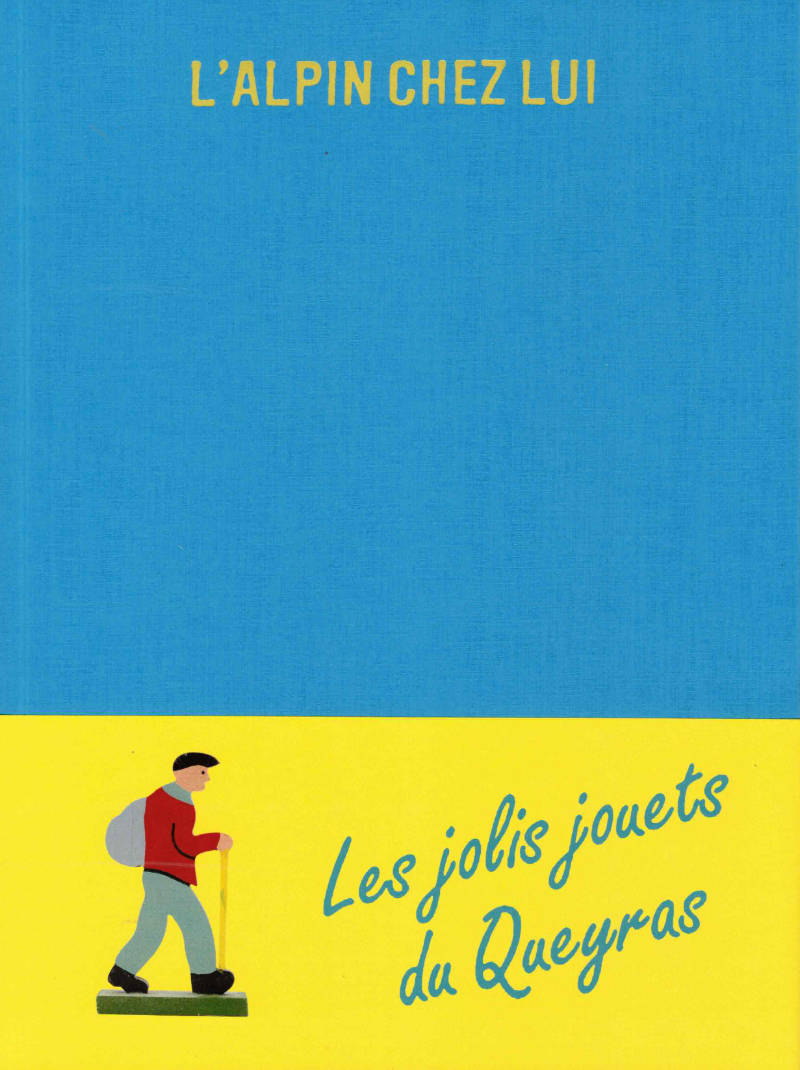
L'Alpin chez lui
L’ Alpin Chez Lui - Les jolis jouets du Queyras présente une collection de jouets en bois artisanaux fabriqués dans les Alpes. Ces figurines naïves aux couleurs vives et aux contours découpés, montées sur un socle et conçues pour une main d’enfant, attirent le regard par leur graphisme épuré.
Depuis 1920, les Jouets du Queyras sont fabriqués à Arvieux, dans les Hautes-Alpes. Cet ouvrage, réalisé par Clémence Passot, retrace l’histoire et l’évolution de la coopérative ouvrière « L’Alpin chez Lui », offrant un témoignage unique sur la vie sociale et économique de la montagne.
Conception graphique et direction éditoriale: Magali Brueder & Clémence Passot

Studies on Squats
Studies on Squats is an evocative exploration of embodied resistance and political movement that uses the multifaceted posture of the “Asian Squat” as a lens through which broader concepts of migration, illness, and resilience are examined. In Studies on Squats, the body—in its most vulnerable and potent states—becomes a speculative site for reclaiming agency by crafting new forms of protest that draw from ancestral strength, humor and eroticism. This posture, rich with cultural resonance, offers as an entry point to imagine ways in which the body can engage in acts of defiance against systems of oppression. Studies on Squats invites the audience to consider how dance and choreographic thinking can serve as tools for envisioning alternative futures, where artistry empowers those enduring systemic social injustices to transform their realities.

Lola the Interpreter
The final book by the award-winning and celebrated writer Lyn Hejinian.
Lyn Hejinian's Lola the Interpreter is a prose poem in which an 'I' and a series of quasi-characters (including Lola) interpret one another, their quotidian lives, and the terms, categories, and presuppositions that allow fragments of experience to be extracted from the flux of perception and framed as objects of analysis. This work stands as a culmination of Hejinian's lifelong exploration of thought's infrastructure, threading through her oeuvre from A Thought is the Bride of What Thinking to My Life and A Border Comedy, to this, her last book. What perhaps marks Lola as a work of late style, of new experimentalism even at the twilight of Hejinian's life, is the extent to which the interpretation that at first seems to be generated out of discrete events transcends its ostensible occasion and becomes philosophy more broadly, a philosophy poised between a necessary skepticism toward the given or imposed and a life-affirming commitment to the emergent possibilities within the ever-shifting and uncertain domain of daily existence.

All Ah We is One: Caribbean Carnival Costume
Caribbean Carnivals have been taking place around the UK since 1959. These joyous celebrations of culture and community began as acts of resistance in the face of enslavement — a defiant stand from communities who refused to lose who they were and where they came from.
Drawing from this rich and radical history, Aisling Serrant explores Carnival through one of its most vibrant and unmissable features: costume. First turned to by former slaves in the Caribbean as an act of reclamation and quiet resistance, with roots in West African and European masquerade alike, the colourful costumes of Carnival weekend remain a vital mode of self-expression, protest, and camaraderie. From Canboulay to Leeds and Notting Hill, the costume makers, wearers, and the communities they attract, embody Carnival in the spirit of an expression used across the Caribbean to signify unity among nations and peoples: all ah we is one.